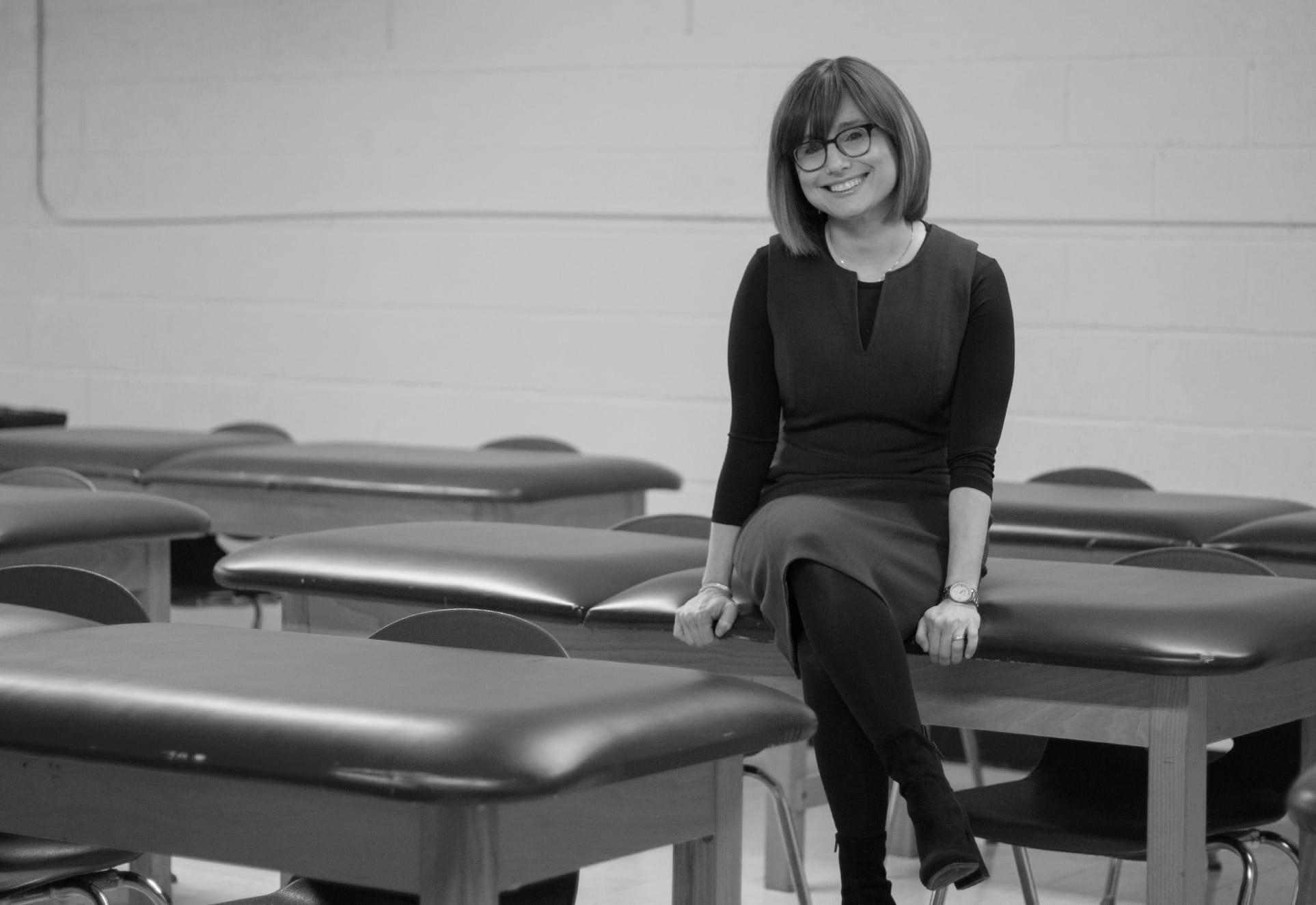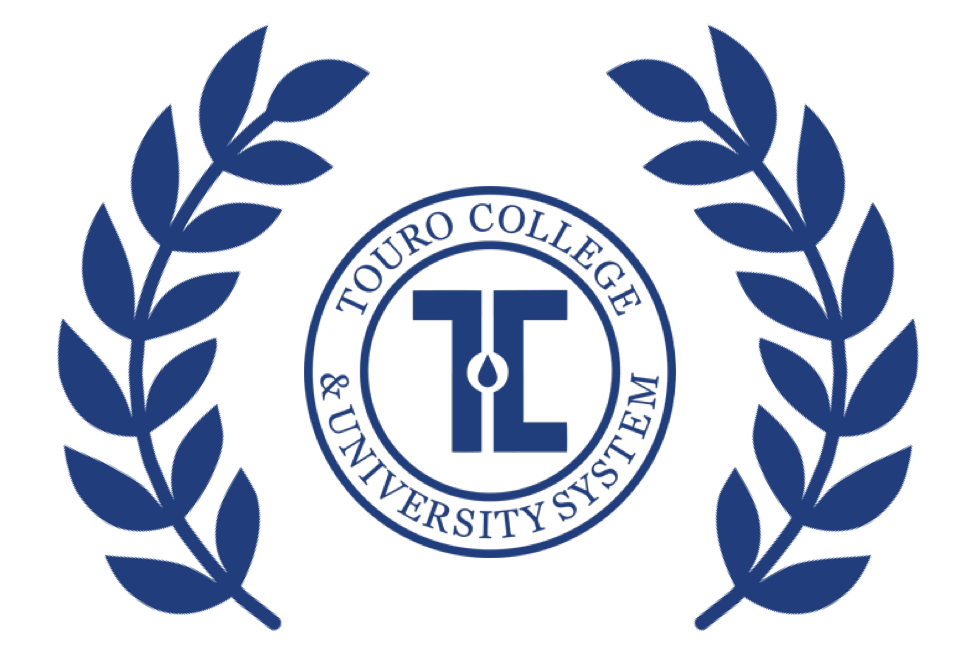Shifra (Sandhaus) Leiser, OTD, OTR/L
Assistant Professor, Occupational Therapy
Touro College School of Health Sciences

What Her Students Say
“Dr. Leiser was my favorite professor from the first day of class in the OT program. She is kind, sweet, and helpful. She really cares about her students and made every effort to help us learn and catered the classes to our needs. She went above and beyond for us every single day. I had her as a professor for quite a few classes and wish I had her for even more. She knew tons of information about the field and was able to illustrate every concept with examples from her own career and life.”
—Melissa Houboff
“Occupational therapists get people back to the ordinary business of living,” said Dr. Shifra (Sandhaus) Leiser, an assistant professor at Touro College School of Health Sciences. “The mission of occupational therapy is to help someone do something that they couldn’t do before. That’s the reason why occupational therapy (OT) can appear so vastly different in various settings. Sometimes we are dealing with an injury that precludes someone from engaging in his or her daily occupations; sometimes we are dealing with developmental issues that are impacting typical skills development. The critical question to ask at any stage and at any age is how to help individuals and families to engage or reengage in the activities that are most meaningful to them.”
“The mission of occupational therapy is to help someone do something that they couldn’t do before."
SHIFRA LEISER
Dr. Leiser said that her desire to enter the health field stems from her family’s history. Hailing from Scranton, Pa., she watched closely how her parents, Rabbi and Mrs. Samuel and Sonia Sandhaus, raised their large family while devoting their time to health care professions and to communal needs; her father as the executive director of a nursing home and her mother as a nurse practitioner. Dr. Leiser learned critical life lessons in faith and devotion from both sets of grandparents. Her maternal grandparents survived the Holocaust and rebuilt their lives after immigrating to the USA. Her paternal grandfather served in the United States Armed Forces and liberated several concentration camps.
“In a way, healing is in our family,” said Dr. Leiser, whose seven siblings are either in communal work or in the health field. “My upbringing compels me to help people through their struggles. I push my clients to draw on their own reservoirs of strengths and resilience for the journey ahead. I want to liberate the voice within my clients, and if needed be the voice of those who cannot speak for themselves.”
Dr. Leiser attended Yeshiva University, and, wanting to enter the health field, debated about which career to pursue.
“I wanted something in the health sciences, but I had a creative and holistic spark,” said Dr. Leiser. “I realized that was exactly what OT is. It’s not just medicine but quality of life, a combination of both psychology and biology.”
She pursued a master’s in occupational therapy at NYU and then practiced clinically. Her hunger to know more—and help her clients more—led her to pursue her post-professional doctorate in occupational therapy (OTD) at Misericordia University in Pennsylvania.
“I wanted to make sense of the bigger picture of occupational therapy: how all the theories intersect and reinforce each other,” said Dr. Leiser. “It was deeply meaningful for me to return to academia. Being re-exposed to the material with the eyes of a practicing clinician made me fall in love with occupational therapy all over again.”
Re-energized from her doctoral experience, Dr. Leiser wanted to inspire the next crop of occupational therapists, and so began teaching at Touro in 2014.
“I wanted to give over my experiences and practice,” said Dr. Leiser. “Imparting some of what I know feels tremendously rewarding. The message I try to give over to my students is ‘open your hearts.’ I want my students to know that, ultimately, they might not be able to solve every problem their patients face. But if they’re willing to be there with their patients and enter their patients’ world, they can make an incredible difference.”
She believes that the affection her students feel for her stems from her understanding of them and their struggles.
“Having my students say that I’m an inspiring professor really made me look back at what I do,” reflected Dr. Leiser. “I try to be very real in the classroom. I recall being on the other side of the desk not so long ago—juggling classwork with home-life while wanting to excel in all areas. I try to be relatable in the journey of going from student to novice clinician and then from novice clinician to a more experienced professional. I try to show my students that professors are real people that have faced similar issues and succeeded.”
Dr. Leiser lives in New Jersey with her husband, Yaakov. They are proud parents and grandparents.
Have a Mentor
One of the instrumental steps for becoming a successful occupational therapist is mentorship, said Dr. Leiser. “OT is both the science of practice and the art of practice. There are many styles and many ways to do the art of practice and it’s only through mentorship that you can really develop your own abilities,” she said. Dr. Leiser counts occupational therapists Dinah Leiter and Judith Bluestone as her mentors and says the mentoring tradition continues for her at Touro, where her mentors include Drs. Stephanie Dapice Wong, Beth Chiariello, and Yocheved Bensinger-Brody.
Interesting Fact
Dr. Leiser’s paternal grandfather, Rabbi Morris A. Sandhaus, was the first Jewish Chief of Chaplains for the US Army. When Dr. Leiser’s grandfather liberated the concentration camps during WW II, one of the survivors he assisted was the leader of a Chasidic dynasty, the Bluzhover Rebbe. The two maintained a close relationship from that time on.
Favorite Quote
“If you knew who walked beside you at all times, on the path that you have chosen, you could never experience fear or doubt again.”
— Dr. Wayne Dyer

/prod01/channel_38/media/redesign/assets/images/background-images/locations-background.jpg)
